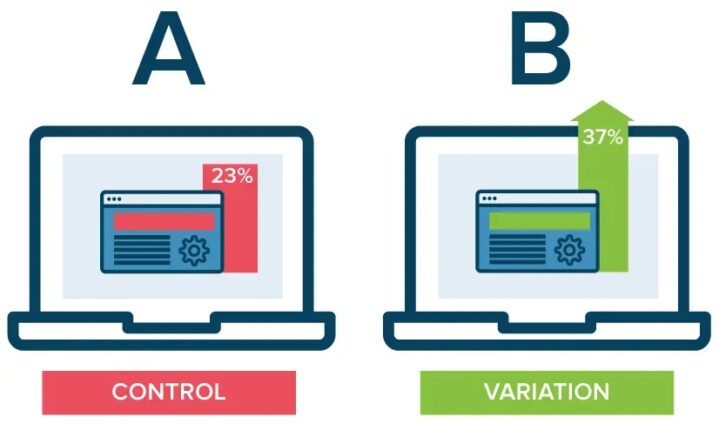The biggest problem with book titles is that most authors don’t A/B test their titles and find the most converting one.
Book title generators give you new and specific titles and book names based on your keywords. For example, A.I. book titles, like our AI book title generator, A.I. book name generator, or A.I. book subtitle generator.
Getting new and original title ideas is one of the first and most important stages of writing a book. If you are stuck with a book title, try our book title generator and A.I. book name generator. It will suggest you hundreds of book titles for your book.
Check out these powerful tools now:
Book Title Generator (Creative Writing)
AI Book Name Generator (Titles)
AI Book Subtitle Generator
Here’s What You’ll Learn…
- How to Find the Most Converting Book Title Instantly
- The Psychology Behind Eye-Catching Titles
- Why Most Authors Nail Their Titles Dead Wrong
- The Formula for Finding the Best Book Title
- Advanced Title Techniques
How to Find the Most Converting Book Title Instantly

Your title is the only sales tool you get with your book.
As authors, we assume that writing a good book is enough to get people to buy it.
Wrong.
If your title isn’t great, then nobody will even give your book a second glance. No matter how good your book is.
It’s that simple.
Here’s what’s going on…
Your title needs to be better than it ever has before.
Think about how many books are coming out every year. In 2024, we saw a record 69 million books sold, and that number keeps going up.
69 MILLION.
In a sea of that many books, having a title that stands out and converts is not just important. It’s CRUCIAL.
That’s why smart authors are A/B testing their book titles with AI tools like this book title generator. It’s a simple way to get hundreds of new titles and then see what converts the best.
The title is your first (and sometimes only) chance to sell your book.
The Psychology Behind Eye-Catching Titles
Grabbing a reader’s attention these days is harder than ever.
Think about it.
Your book title has 3 seconds to make an impact.
That’s it. 3 seconds.
In that tiny amount of time, your would-be reader decides if your book is what they’re looking for. But here’s the crazy thing…
Your title is actually doing way more work than you realize.
To be successful, a book title must:
- Communicate value — Tell the reader what they will gain from this book
- Target the right audience — Make it clear who this is for
- Stand out from the crowd — Differentiate from the competition
- Be memorable — Easy to remember and share
All in just a few words.
Insane, right?
But here’s the thing…
The most successful books all have one thing in common with their titles. They use psychological triggers that make people FEEL they have to know more.
This is why titles that trigger emotions or tap into a specific need work so well.
Why Most Authors Nail Their Titles Dead Wrong
Authors get attached to a title. They come up with something cute or clever, but then they stick with it even when it doesn’t convert.
Here’s the thing with being cute…
Nobody wants to figure out your cool word puzzle.
Readers today want to know immediately if your book is going to solve their problem or entertain them in the way they need.
Let’s talk about real examples for a second.
Here are some titles that work versus titles that don’t:
Titles that work:
- “The 4-Hour Workweek” (benefit + timeframe)
- “The Subtle Art of Not Giving a F*ck” (breaks the mold)
- “You Are a Badass” (identifies the audience)
Titles that don’t work:
- “The Magic of Mushrooms” (bland)
- “Mindset” (vague)
- “Business Made Simple” (common phrase)
See the pattern? The good titles tell you exactly what you’re getting. The bad titles leave you wondering.
And when people wonder what your book is about, they don’t buy it.
The Formula for Finding the Best Book Title

There is one formula that, more than any other, helps authors find the best book title.
You’re going to hate it. But here goes…
It’s simple, and most authors ignore it:
Need + Solution + Audience = Winning Title
Let’s break that down:
Need: What pain point or desire does your reader have? Solution: What book/approach/method do you offer? Audience: Who exactly is this book for?
Example: Need: A better diet plan Solution: Plant-based recipes Audience: Busy professionals Title: “Plant-Based Diet for Busy Professionals”
Boom. Title created.
And here’s why this works so well…
This formula tells the reader exactly what they want to know. It shows them that you get their problem and have a book that specifically targets their needs.
Authors mess this up by trying to be too broad.
They want their book to appeal to everyone. So they make their titles so vague, no one actually knows what they’re about.
Don’t fall into this trap.
Be specific. Drill down on your ideal reader. And write your book title specifically for them.
Advanced A/B Testing Tips

Now for some insider secrets…
The big publishing companies run thousands of title tests before deciding which one to go with. You can do the same (without the budget of a big publisher) using some simple testing techniques.
A/B Test Variations of Your Title
Most authors pick a title, print the cover, and hope it works.
Wise authors A/B test a few different options to find the one that sells.
Create 5-10 different versions of your book title. Use an A.I. book name generator if you need ideas.
Then, post them on social media and see which gets the most engagement and clicks.
Analyze Your Competition
Study the top 10 books in your category on Amazon. What do you notice?
Are they using titles with numbers? Specific promises? Emotional triggers?
Copy them, but make it better. Take the same techniques and combine them with the ones we’ve discussed.
Incorporate Power Words
Certain words consistently trigger more sales. Here are a few to get you started:
For Non-Fiction: Ultimate, Complete, Essential, Proven, Secret, Simple
For Fiction: Dark, Last, Lost, Hidden, Forbidden, Broken
These words create curiosity and urgency. Use them strategically.
Your Title Testing Checklist

Before you finalize your title, run through this checklist:
- Would I pick this book up based on the title alone?
- Does it clearly communicate value to the reader?
- Is it memorable enough to be word-of-mouth friendly?
- Does it stand out from my competition?
- Would my ideal reader immediately know this is for them?
If you can’t answer YES to every question, keep working.
Pro-tip: Don’t settle on your title without testing several options with your target audience. What you think is amazing might not click with buyers.
Wrap Up: Stop Ignoring Your Book Title
Listen, your book title is your best marketing tool.
In a world with more books published than ever, a great title that stands out and converts browsers into buyers is what separates the winners from the also-rans.
The authors who get this invest the time to test and hone their titles. They A/B test different options, analyze their competition, and use proven formulas to create magnetic titles that convert.
Don’t leave this to chance. Spend the time and effort on your title that your book deserves.
Remember: A great book with a terrible title is going to struggle to get noticed. But a good book with a magnetic title? Now you’re cooking with gas.
Stop wasting time. Start testing your titles now.
You’re only limiting your book’s potential if you leave it to chance.
Take action and start testing multiple variations of your book title to find the one that converts. Your readers are waiting.
AI Book Title Generator (Creative Writing)
AI Book Name Generator (Titles)
AI Book Subtitle Generator
